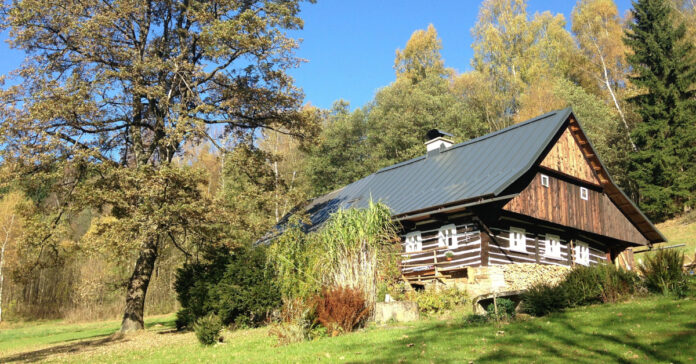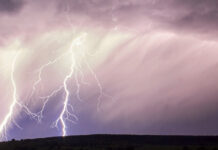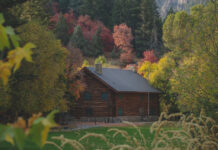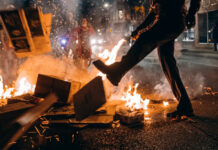
One year ago, we left our home near the city and moved into our rural prepper property. Last week, I wrote about the lessons learned moving from the exurbs to the middle of nowhere. Today, I will discuss things we wish we had done differently regarding our property search, which is detailed here.
More Pasture
My biggest regret is that we do not have more pasture. We cannot raise goats or even pigs unless I were to fence part of the mountain. Having already installed fencing on a mild grade, I can only imagine how difficult it would be to fence steep terrain.
While I like to think of our land as our “homestead,” the terrain constraints limit our homesteading capacity to small livestock. It may also limit the amount of land we can use to grow food in a grid-down situation.
We are considering installing some terraces, but that will be expensive because it would require heavy equipment to do some serious earth moving, bringing in full dirt, and building well-engineered retaining walls. I don’t see it happening any time in the next three years, if ever.
In the meantime, we will consider planting some fruit trees and more berries on the hill., as well as pollinators for the bees.
Outbuildings and Storage Space
This home has no outbuildings. After moving, we built a chicken coop, but that hardly counts. As a result, we filled one side of the attached garage with tools and equipment, and I park my truck outdoors. I also leave some equipment under the deck. It’s dry, but it is not out of sight. If we were in an area plagued with theft, I would worry. We are not, and there’s not much value in my old lawnmower, so I am not too worried. If I lost everything under there, it would not affect our preparedness level.
In our old house, we had a detached garage with attic storage. I miss that storage space! This house has much less storage space, but we did downsize significantly, so that is to be expected.
The Nearest Town
I like the remoteness of our location, and we like our neighbors. We like being on a road with no through traffic. We don’t even mind getting snowed in a few days at a time during the winter.
In hindsight, however, we picked a house near the wrong town. It would have been more convenient to live one county over, near a different small town. The good news is that it is only 15 or 20 minutes away from our local town, so we go there when necessary. They have better shopping and more resources. They also have a more vibrant downtown with more restaurants. Some of our new friends live there as well.
You don’t get to know the character of one town over another until you live there. Despite half a dozen trips to this general area to look at houses, we didn’t have the local knowledge then that we do now. It’s hard to learn that one town has a better dentist or chiropractor until you get there and can talk to people.
Right now, living one town over means we have to drive an extra 15 or 20 minutes once every two weeks, which is not much of a sacrifice. I expect in another decade or two, our town will be larger and have more services. By then, we might think that other town is too commercial. In the long run, we might be in the best place after all. Time will tell.
Not Off Grid
I wish we had a robust solar power system so we could be completely off grid. We rely on utility-supplied power, which is a vulnerability. During our search, we saw only one off-grid system. If you want one you may have to build your own or retrofit an existing structure.
We heat with wood rather than natural gas or propane, and our land provides gravity-fed water and septic, which are important for our self-sufficiency. From a prepper standpoint, we are ahead of many but would be much better prepared if we also had an off-grid solar power system.
It would be difficult to go solar here because the builder did not design the house for solar power. It has all-electric utilities, from the hot water to the stove top and oven. Although batteries are improving and prices per kilowatt hour are decreasing, I don’t see us going fully solar in the next decade. We’d need to see a paradigm shift or 75 percent drop in storage costs for us to make that leap.
In the interim, I expect to one day invest in a large solar generator and somewhere between 600 and 1,200 watts of solar panels that we can deploy as needed. This won’t be enough power to bake bread in the oven or provide hot water, but it will provide lighting, recharge devices, and run the washing machine a couple times per charge. That alone should make post-collapse life more manageable. Solar powered LED lighting sure beats the heck out of candles and lanterns.
Final Thoughts
In real estate, as in much else, don’t let your search for “perfect” prevent you from being happy with “good enough.” If you continue to seek that perfect property, you will never move out of the city. Some sacrifices will need to be made. Maybe the kids will have to share a bedroom or the barn needs fixing. Perhaps the carpets are ancient and the kitchen needs upgraded appliances. None of those should be deal breakers if it has the kind of land you want and is in the right place.
For example, we knew our property wasn’t flat and didn’t have outbuildings, but we bought it anyhow. In hindsight, that was the right move for multiple reasons.
Keep in mind that the low population density of rural America means there are fewer houses to choose from than in the crowded suburbs. Many of the houses are old and are changing hands only because the former owner died. Expect them to need repairs and upgrades, but expect property values to be far lower than in the city. If you plan to live there for years, you will have plenty of time to make the improvements you want.







